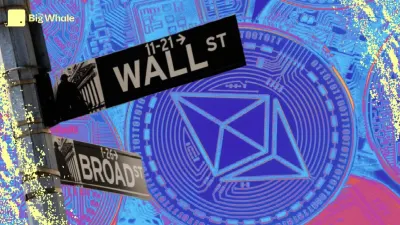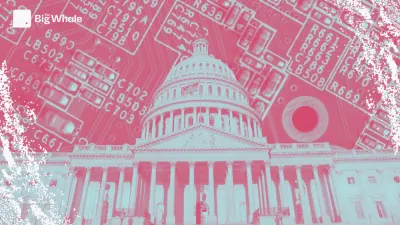The dreaded SEC issued an order on August 28 imposing severe sanctions on the media company, Impact Theory, for raising $30 million in 2021 via the sale of NFTs of "founders" intended to fund "the next Disney Studio" and promising "obscene profitability" in up to five years.
A second, related order was issued on 13 September 2023, against the company Stoner Cats for raising nearly $8.2 million by selling in July 2021, a collection of 10.320 NFTs , sold out in 35 minutes, intended to finance an animated series of felines, speaking with the (real) voices of Hollywood stars including Ashton Kutcher, Mila Kunis and Jane Fonda, not to mention the participation of the iconic founder of Ethereum, Vitalik Buterin.
Not surprisingly, the legal basis for these decisions lies in US financial law, and the application of the famous Howey test rule dating back to a 1933 judicial precedent.
At the time, the case established a four-part test, a bundle of clues to look for, to determine what constitutes an investment contract: (i) an investment of money (ii) in a joint venture (iii) with an expectation of profits (iv) derived from the efforts of others.
In both cases, the two orders noted that many purchasers of NFTs had resold them straight away on the second market, rather than keeping them, as collectors' items, making them... financial securities.
Following the SEC's decision, the NFTs issuer would therefore be condemned by the speculative intention of the buyers, even though it did not encourage it, which would be tantamount to making it responsible for the buyer's personal choice of behaviour.
As for the profit derived from the resale of the Stoner Cats NFT noted by the SEC, even though the producer delivered a series of six episodes, the only ones viewable by their purchaser, the qualification as a "financial security" is open to criticism. Indeed, the sale contract does have a certain object, deferring delivery of the acquired good, and not a corporate title in the producing company.
This approach by the SEC is problematic since it comes to make NFTs financial securities by the simple fact that they are transferable and that their value may be variable. These vague criteria call into question, as they stand, the attempt to find a decentralised alternative mode of financing for the creative industries.
Smart contracts dismantled In its orders, the SEC has called for the modification and destruction of NFTs' smart contracts, a hitherto unprecedented decision. Such a decision will obviously have an impact on future projects, particularly in terms of coding.
The other sanctions are known, and consequent:
payment of an administrative fine ($6.1 million for Impact Theory, $1 million for Stoner Cats)
obligation to set up a special guaranteed reimbursement fund for complainants, managed by the Treasury, (without specifying the currency and retained value of the redemption price, or whether the reimbursed NFT will be destroyed or not)
publication of an announcement of the order on their websites, in media and other social networks of weight used.
The SEC orders the destruction of the condemned NFTs in the possession or still under the control of the platform, then the dismantling of the "smart-contracts" of the NFTs circulating on the second market, to eliminate its share of revenue, commonly known as royalties, on their resale.
This assumes that the platform owns the smart-contract deploying the NFT and retains management and updating of all its parameters. The application of these sanctions is therefore only made possible if the platform has coded into its smart-contracts, the functions of destroying and modifying the rate of royalties to its portfolio. In the latter case, the prior acquirer's right to a share in the resale of the NFT is preserved.
It should be noted that the platform still retains centralised governance of the smart contract and does not give up interaction, which exposes it to losing this control in the event of piracy of its portfolio, and consequently also exposes the prior acquirers.
If this had not been the case, would the SEC's financial penalty have been more severe?
It should be noted that if simplified information was provided to the buyer, this would avoid surprises of metadata changes or loss following portfolio hacks.
Protecting and informing purchasers of NFTs The SEC condemns exalted communication encouraging the purchase of NFTs, with the aim of protecting the purchaser in order to avoid disappointment, or even being the victim of deception regarding the nature of the contract binding them to the market platform.
This is in line with one of the recommendations made by the Inspectorate General of Finance in its report dated 22 May 2023, page 9, based on the observation that consumers "are not always aware of the rights guaranteed to them that they can actually enforce against the issuer."
In the interests of legal certainty for NFT buyers, the IGF therefore recommends the application of article L.122-5 of the Consumer Code, which requires the professional to provide the consumer with legible, accurate and complete information on the
"essential characteristics of the good, digital service or digital content".
In its view, this information, should therefore be passed on each time the NFT is transferred to the new purchaser, which once again leads us to reflect on the choices of code for the NFT.
By thus likening the purchaser of an NFT to a consumer of a digital good, service or product, the IGF is here joining the trend of the French judge to apply consumer law in the crypto economy.
It will be recalled that at least one French court has so far upheld an extensive interpretation of consumer status for a regular investor and shareholder in a trading platform. (CA Montpellier, 21 October 2021), because he was a student and did not derive income from it as part of his professional activity.
Operators of platforms selling NFTs have to deal with consumer law, which is very often neglected, and results in practice in GTCs taken by copy/paste from American platform TCSs, when not drafted via ChatGPT 3 or 4...
Heading 1 Heading 2 Heading 3 Heading 4 Heading 5 Heading 6 Lorem ipsum dolor sit amet, consectetur adipiscing elit, sed do eiusmod tempor incididunt ut labore et dolore magna aliqua. Ut enim ad minim veniam, quis nostrud exercitation ullamco laboris nisi ut aliquip ex ea commodo consequat. Duis aute irure dolor in reprehenderit in voluptate velit esse cillum dolore eu fugiat nulla pariatur.
Block quote Ordered list
Item 1 Item 2 Item 3 Unordered list
Text link
Bold text
Emphasis
Superscript
Subscript





